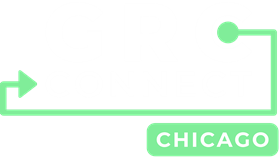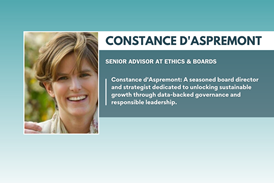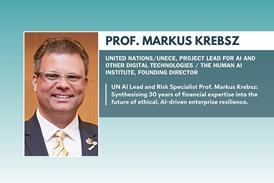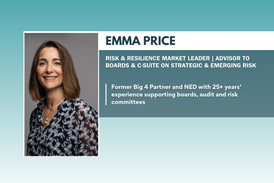Deputy Attorney General Lisa Monaco recently gave a speech outlining a new Department of Justice drive to tackle criminal behaviour and compliance issues associated with AI technology.

The initiatives are set to intensify scrutiny on policy issues related to effective use of AI in the justice system. The DOJ has already used such software to boost areas such as the fight against drugs trafficking, the assessment of public tip-offs given to government agencies, and the analysis of data evidence in an array of legal cases.
The Deputy Attorney General also unveiled updates on corporate compliance guidelines for firms developing, selling or implementing AI tools. The new guidance is now set to be integrated into the DOJ’s Evaluation of Corporate Compliance Programs, and will impinge upon such programs to analyse and offset risk stemming from business use and/or sale of AI and other pioneering wizardry.
US firms falling short of compliance standards may find themselves facing far more challenging pathways to corporate criminal resolutions, which may lead to more complex compliance measures, the allocation of an independent compliance supervisor, and stiffer penalties.
Monaco’s speech also underlined increasing governmental fears over the dangers of AI in criminal hands. Where technology “is deliberately misused to make a white-collar crime significantly more serious, our prosecutors will be seeking stiffer sentences — for individuals and corporate defendants alike”, Monaco said.
Statements were also made regarding a new DOJ whistleblower scheme to incentivise the reporting of corporate malpractice, with pilots of the program pencilled in for later 2024.
Resonating with the US government’s strengthening posture in this area, the US Attorney’s Office for the Southern District of New York recently charged two individuals with hacking online entertainment accounts and gambling platforms and then selling associated PII data on the dark web. The accused men advertised their fraudulent services with the help of images created by generative AI tools.
Know the risks
Monaco’s statements underscore the growing emphasis that world governments are putting on the development of safeguards around the use of AI in business.
These issues and many more related to corporate governance, risk and compliance (GRC) will be explored this month at PrivSec & GRC Connect Chicago, in sessions dedicated to exploration of good practice on the rapidly evolving AI landscape.
Speaking recently to GRC World Forums, RegTech Adviser and Law Professor at Fordham Law School, Stan Yakoff described some of the key challenges that businesses face as they integrate AI with compliance functions.
“Trying to rush a ‘solution’ without clearly understanding and articulating the problem statement being solved,” was one issue Yakoff underlined.
“Counter to the hype seen today, there are plenty of problem statements where ‘AI’ is not the most effective answer and there is a simpler, more cost-efficient, and timely approach,” Yakoff added.
“For example, the solution instead may be: (1) process automation or (2) the incorporation of additional contextual data available internally or externally to aid with decision-making,” he continued.
Not to be missed at PrivSec & GRC Connect Chicago:
The Governance Principles and Practices You Need for AI
- Date: Wednesday 17 April, 2024
- 11:00-11:30pm CST
Artificial intelligence is already racing into the corporate enterprise; the question for compliance, risk, audit and governance professionals is how you can assure that AI races wisely into your enterprise.
This session will explore the IT governance practices that organizations should already have in place so that as employees experiment with AI’s possibilities, they do so in alignment with your risk profile and don’t invite regulatory infractions, security breaches, stakeholder discontent, or other threats.
AI Regulation: What Businesses Need to Know in 2024
- Date: Wednesday 17 April, 2024
- 14:15-15:00pm CST
This discussion convenes experts at the intersection of artificial intelligence (AI) and regulatory compliance to provide insights into the evolving landscape of AI governance. Against the backdrop of rapid technological advancements and increasing public scrutiny, the panel will delve into crucial topics such as emerging regulatory frameworks, ethical considerations, data privacy concerns and the impact of AI on various industries.
Attendees will gain a comprehensive understanding of the regulatory landscape surrounding AI in 2024, enabling businesses to navigate compliance challenges effectively while harnessing the transformative potential of AI responsibly and ethically.
Discover more at PrivSec & GRC Connect Chicago
GRC, Data Protection, Security and Privacy professionals face ongoing challenges to help mitigate risk, comply with regulations, and help achieve their business objectives - they must…
- Continually adopt new technologies to improve efficiency and effectiveness.
- Build a culture of compliance and risk awareness throughout the organisation.
- Communicate effectively with stakeholders and keep them informed of GRC activities.
PrivSec & GRC Connect Chicago takes you to the edge of the debate, uniting the most influential GRC, Data Protection, Privacy and Security professionals, to present, debate, learn and exchange ideas.
This dynamic and content-rich experience takes place over April 16-17 at the Crowne Plaza Chicago West Loop.
Click here to register for free to PrivSec & GRC Connect Chicago









No comments yet